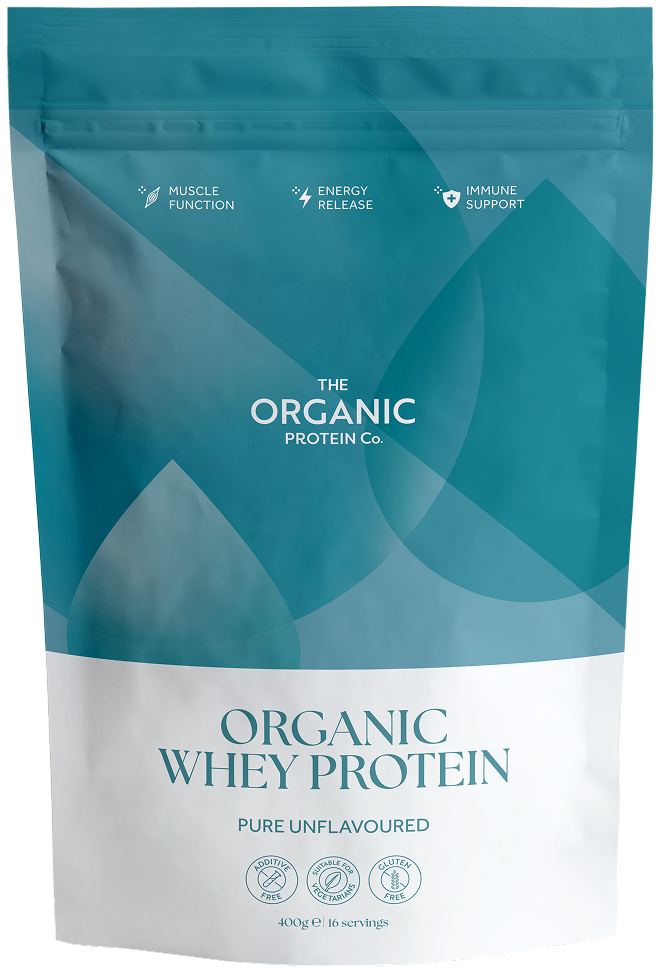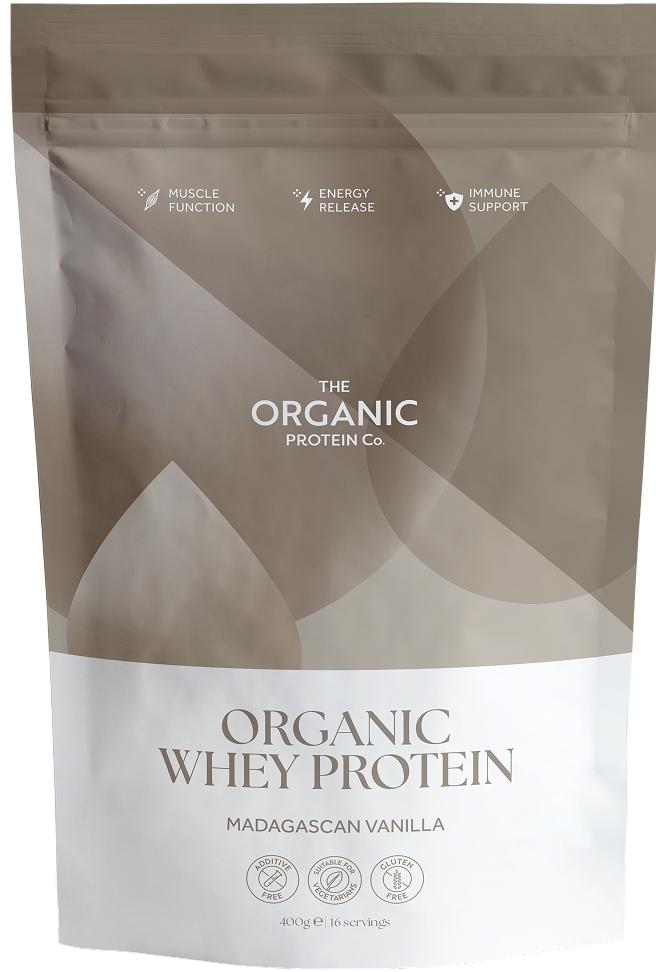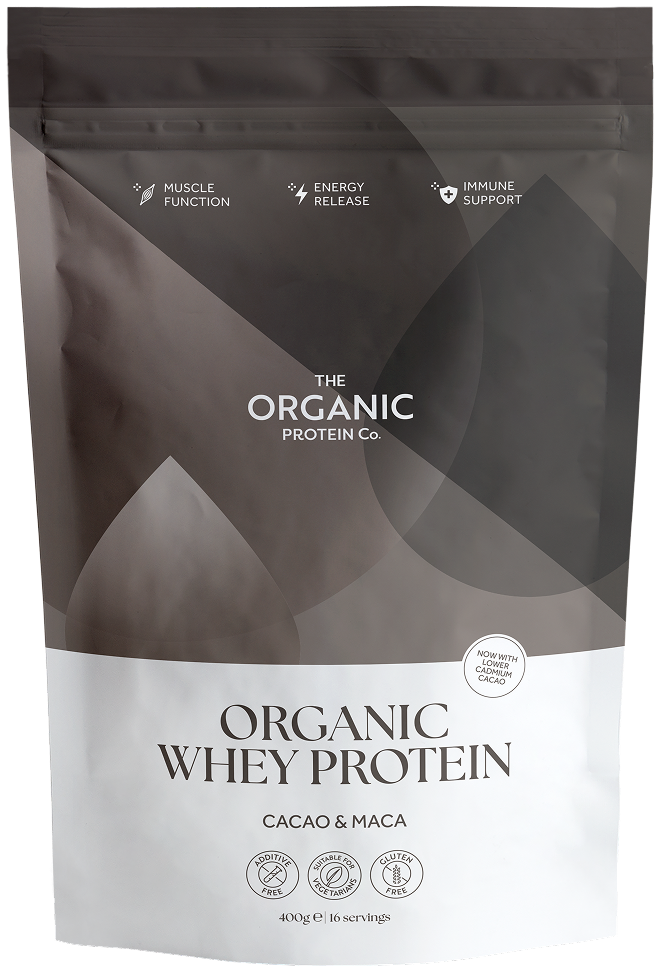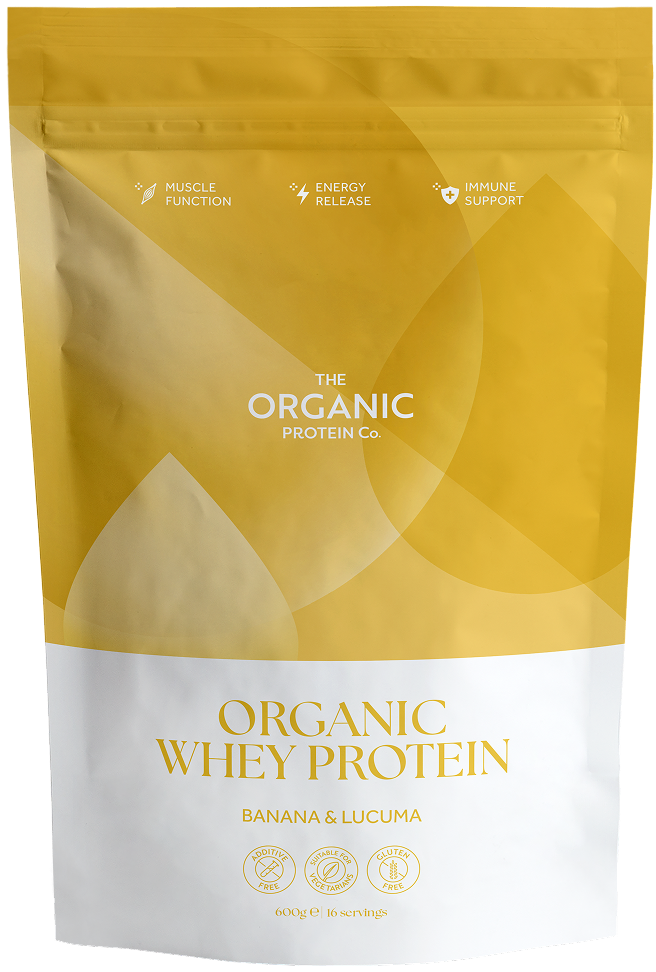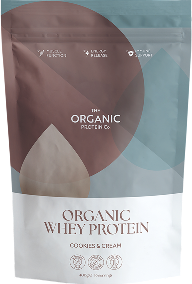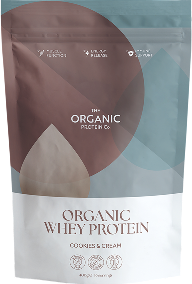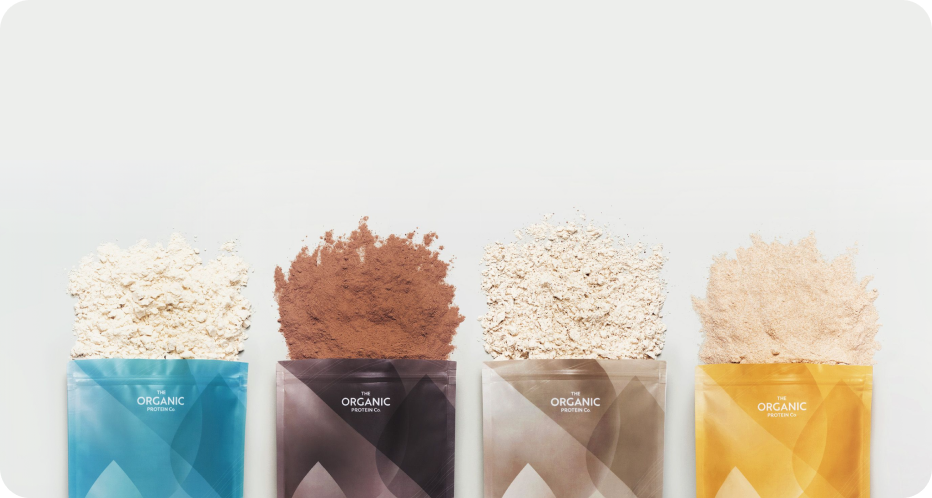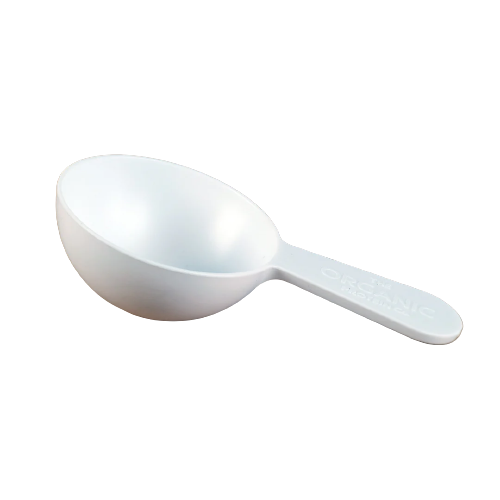Our nutritional requirements shift throughout our lives and for people who menstruate, one of the key times we might experience this is before, during, and after menopause. Whether you’re carrying out research for yourself, or for someone you’re supporting through the often challenging menopause transition, knowledge can be key to alleviating some of the associated symptoms and difficulties.
The role of protein in the diet of menopausal women and people is becoming increasingly understood and with this blog, we hope to clarify some of the questions you might have, including why you may need more protein, how much protein you might need, and the best protein sources for menopause.
What is menopause?
To really understand the relationship between protein and menopause, it can help to go back to basics and clarify what menopause is. Menopause marks the natural end of the menstrual cycle, typically occurring between the ages of 45 and 55. (1) It is generally marked by three stages:
- Perimenopause: The stage before menopause, which is prompted by a natural fluctuation and decline in oestrogen levels with age. (2)
- Menopause: Officially marked 12 months after the last period, oestrogen levels drop significantly. (3)
- Postmenopause: The years after menopause, when menstruation has ceased. (4)
Symptoms of menopause
There are various symptoms associated with menopause, many of which can have an effect on your relationships, social life, and work. Common signs include (5):
- Hot flashes or flushes
- Difficulty sleeping
- Night sweats
- Irregular periods
- Mood swings or anxiety
- Decreased libido

Physical changes from menopause
As well as experiencing symptoms of menopause, your body will naturally begin to change as a result of fluctuating hormone levels. Some of the main ways these changes will manifest are:
- A loss of muscle mass: A natural decline in muscle due to reduced hormone levels, making it harder to maintain strength and mobility (also referred to as sarcopenia). (6)
- Bone density loss: The drop in oestrogen can also lead to weaker bones, increasing the risk of osteoporosis. (7)
- Difficulty managing weight: Your metabolism can begin to slow down, making weight management more difficult and sometimes leading to weight gain, particularly around the abdomen. (8)
The role of protein in menopause
These vital building blocks play an important role in our bodies throughout our lives, but research into whether protein can help with menopause has shown us that it becomes even more important at this life stage. Protein is key to a balanced diet during menopause for a number of reasons:
Supporting muscle health
Protein is widely known to be one of the key macronutrients we need for our muscles, (9) and with the decline in muscle mass during menopause, maintaining a regular protein intake becomes even more vital, helping to maintain your muscle health. (10)
How much protein do I need during menopause?
It can be confusing to understand exactly how much protein you are recommended to consume, as guidelines tend to vary. The baseline UK recommendation is around 0.75g of protein per kg of body weight per day – around 45g for women and 55g for men. For menopausal individuals, some research suggests that a higher protein intake of 1-2g per kg of body weight could be supportive of muscle health. (11)
There are also guidelines from the British Menopause Society which suggest that protein should make up approximately ¼ of your lunch and dinner. (12)

Weight management
As the metabolism slows during menopause, it can become difficult to manage your weight effectively. (13) Changes to your hormone levels can also lead to fluctuations in your blood sugar level, which also affects weight management. (14)
The role of protein in weight management during menopause is three-fold:
A high-protein meal is generally more satiating as it reduces the secretion of the hunger hormone ghrelin, keeping you satisfied for longer after a meal and reducing unnecessary snacking. (15)
Muscles are more metabolically active than fat tissue, meaning your body uses more energy (calories) to maintain them. Maintaining lean muscle mass can therefore help to support weight management during menopause. (16)
Protein can help to stabilise blood sugar levels by slowing down the absorption of carbohydrates. Starting your day with a high-protein breakfast can prevent blood sugar spikes and crashes. (17)
Supporting bone health
With declining oestrogen levels comes a decrease in bone density. This means that osteoporosis is more likely, affecting one in three menopausal individuals. (18)
Some studies have shown that, along with sufficient calcium and vitamin D intake, protein can be beneficial to bone health. (19) When looking at the bone health of menopausal women in particular, protein is often highlighted as a key macronutrient to reduce the risk of osteoporosis. (20)
The best protein sources for menopause
In most life stages, the best way to eat your protein intake is through whole foods. Depending on your dietary requirements and preferences, the best sources of protein for menopause might include:
Lean meats such as chicken and turkey
Fish
Greek yoghurt
Beans and pulses
Nuts and seeds
Soy products such as tofu - soy contains chemicals known as phytoestrogens, which are being studied for their role in reducing the symptoms of menopause (21)
It’s important to consume these protein sources alongside a balanced diet including lots of fruit, vegetables, whole grains, and healthy fats. (22)
Protein powders for menopause
Protein powders are a fantastic way to increase your protein intake alongside a balanced, whole food diet. Made from various sources such as whey protein, soy protein, pea protein, or seed protein, these powders isolate high-quality protein and can be added to shakes, smoothies, and even savoury meals when you’re pressed for time or simply want a convenient protein boost.
The best protein powder for menopause depends on your diet, preferences, and digestive sensitivities – for example, you may prefer to opt for a plant-based option if you have dairy intolerance issues. For those without any dietary restrictions, whey protein is a great option.

Whey protein powder and menopause
Whey protein powder comes from cow’s milk and is generally a by-product of the cheese-making process. It’s often seen as one of the best protein sources owing to its complete amino acid profile (23) as well as its high bioavailability, which means our bodies can generally digest and absorb it with ease. (24)
For menopausal individuals, whey protein powder can be a good option to help increase their protein intake not only as it’s a high-quality source of protein, but also because it:
- Supports muscle health: Whey is a complete protein with all nine essential amino acids. This includes good levels of the amino acid leucine, which is especially important for muscle maintenance. (25)
- Supports bone health: Whey is rich in calcium which, alongside the protein content, may help to maintain and support bone health during menopause. (26)
- May improve sleep quality: Whey contains tryptophan, an amino acid that helps in the production of serotonin, which is later converted into melatonin. This may support better sleep cycles, an area of concern for many going through menopause. (27)
- Is easy to use: Whey protein powder, particularly an unflavoured option, is simple to combine with your everyday diet. A high-protein breakfast with Greek yoghurt, fruit, and a scoop of whey protein powder, for example, may help to keep you satiated and stabilise your blood sugar.
A final word on protein and menopause
As we’ve seen, it’s essential to include good sources of protein in your diet at all stages of menopause, helping to maintain muscle mass and support bone health. While every experience is different, making sure you get enough high-quality protein has been shown to be vital to staying physically active and healthy in this stage of life.


